Filter by
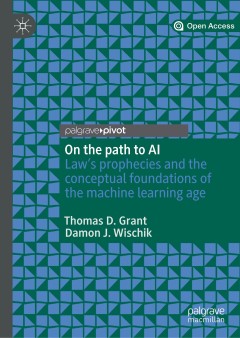
On the path to AI : law's prophecies and the conceptual foundations of the ma…
This open access book explores machine learning and its impact on how we make sense of the world. It does so by bringing together two ‘revolutions’ in a surprising analogy: the revolution of machine learning, which has placed computing on the path to artificial intelligence, and the revolution in thinking about the law that was spurred by Oliver Wendell Holmes Jr in the last two decades of …
- Edition
- -
- ISBN/ISSN
- 9783030435820
- Collation
- xxii, 147p. : ill.
- Series Title
- -
- Call Number
- 006.3 GRA o

Art, research, philosophy
The idea that art can be a form of research and, therefore, a contribution to knowledge, raises a number of philosophical questions such as: What is research in, through or for art? Should art draw upon research methods from other subjects, or develop its own? What kind of forms are produced or might be produced through artistic research?This is the first book to address the questions raised by…
- Edition
- -
- ISBN/ISSN
- 9781138789777
- Collation
- IX, 191 p.
- Series Title
- -
- Call Number
- 700.72 CAZ a
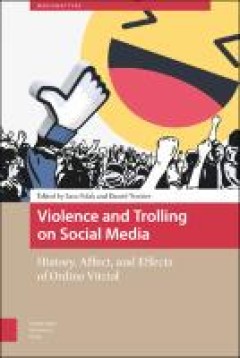
Violence and trolling on social media : history, affect, and effects of onlin…
'Trolls for Trump', virtual rape, fake news - social media discourse, including forms of virtual and real violence, has become a formidable, yet elusive, political force. What characterizes online vitriol? How do we understand the narratives generated, and also address their real-world - even life-and-death - impact? How can hatred, bullying, and dehumanization on social media platforms be addr…
- Edition
- -
- ISBN/ISSN
- 9789048542048
- Collation
- 266 p,
- Series Title
- MediaMatters
- Call Number
- 006.754 VIO v

Stories
Stories are central drivers of media today-not only do they propel plot-driven entertainment media, such as television, cinema, theatre, but also social media. Telling and having a story is widely deemed essential, both in the large and widely visible world of commerce and in the everyday social lives of individuals. Does this dynamic represent an intensification of what has always been part of…
- Edition
- -
- ISBN/ISSN
- 9789462985841
- Collation
- 201 p.
- Series Title
- -
- Call Number
- 302.23 STO s

Animal rights activism: a moral sociological perspective on social movements
We’re in an era of ever increasing attention to animal rights, and activism around the issue is growing more widespread and prominent. In this volume, Kerstin Jacobsson and Jonas Lindblom use the animal rights movement in Sweden to offer the first analysis of social movements through the lens of Emile Durkheim’s sociology of morality. By positing social movements as essentially a moral phen…
- Edition
- -
- ISBN/ISSN
- 9789089647641
- Collation
- 145p.: ill.
- Series Title
- -
- Call Number
- 303.484 JAC a
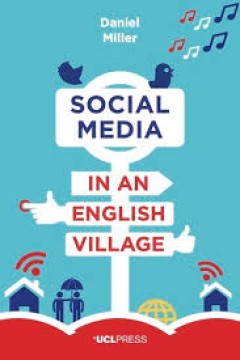
Social Media in an English Village
Daniel Miller spent 18 months undertaking an ethnographic study with the residents of an English village, tracking their use of the different social media platforms. Following his study, he argues that a focus on platforms such as Facebook, Twitter and Instagram does little to explain what we post on social media. Instead, the key to understanding how people in an English village use social med…
- Edition
- -
- ISBN/ISSN
- 9781910634448
- Collation
- xii, 209p.: ill.
- Series Title
- -
- Call Number
- 302.2310942 MIL s
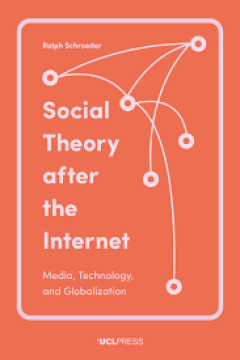
Social theory after the internet: media, technology and globalization
The internet has fundamentally transformed society in the past 25 years, yet existing theories of mass or interpersonal communication do not work well in understanding a digital world. Nor has this understanding been helped by disciplinary specialization and a continual focus on the latest innovations. Ralph Schroeder takes a longer-term view, synthesizing perspectives and findings from various…
- Edition
- -
- ISBN/ISSN
- 9781787351226
- Collation
- xii, 197p.: ill.
- Series Title
- -
- Call Number
- 303.4833 SCH s
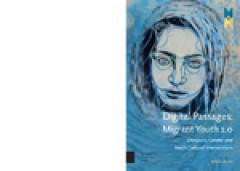
Digital passages: migrant youth 2.0. Diaspora, gender and youth cultural inte…
Increasingly, young people live online, with the vast majority of their social and cultural interactions conducted through means other than face-to-face conversation. How does this transition impact the ways in which young migrants understand, negotiate, and perform identity? That's the question taken up by Digital Passages: Migrant Youth 2.0, a ground-breaking analysis of the ways that youth c…
- Edition
- -
- ISBN/ISSN
- 9789048523047
- Collation
- 324 p.; 22 cm.
- Series Title
- MediaMatters,
- Call Number
- 305.8 LEU d
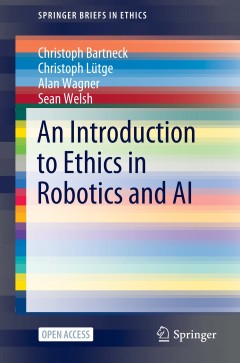
An introduction to ethics in robotics and AI
This open access book introduces the reader to the foundations of AI and ethics. It discusses issues of trust, responsibility, liability, privacy and risk. It focuses on the interaction between people and the AI systems and Robotics they use. Designed to be accessible for a broad audience, reading this book does not require prerequisite technical, legal or philosophical expertise. Throughout, t…
- Edition
- -
- ISBN/ISSN
- 9783030511104
- Collation
- xi, 117p. : ill.
- Series Title
- -
- Call Number
- 343.09944 INT i
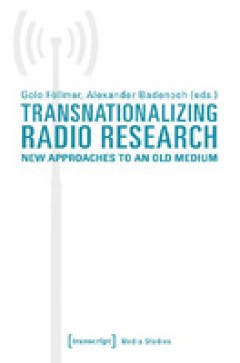
Transnationalizing radio research : new approaches to an old medium
Transnationalizing Radio Research presents a theoretical and methodological guide for exploring radio's multiple »global ages«, from its earliest years through its recent digital transformations. It offers radio scholars theoretical tools and concrete case studies for moving beyond national research frames. It gives radio practitioners inspiration for production and archiving, and offers scho…
- Edition
- -
- ISBN/ISSN
- 783839439135
- Collation
- 314 p.; 22 cm.
- Series Title
- Edition Medienwissenschaft, 42
- Call Number
- 302.23 TRA t
 Computer Science, Information & General Works
Computer Science, Information & General Works  Philosophy & Psychology
Philosophy & Psychology  Religion
Religion  Social Sciences
Social Sciences  Language
Language  Pure Science
Pure Science  Applied Sciences
Applied Sciences  Art & Recreation
Art & Recreation  Literature
Literature  History & Geography
History & Geography